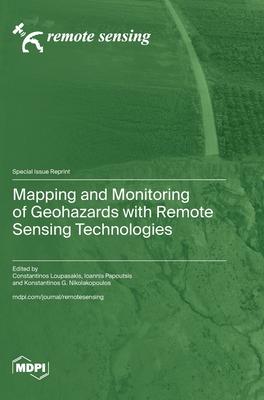Earth observation (EO) techniques have proven to be reliable and accurate for monitoring land-surface deformations that occur naturally (landslides, earthquakes, and volcanoes) or due to anthropogenic activities (ground-water overexploitation, extraction of oil and gas). In cases where mitigation methods have to be put into practice, the detailed mapping, characterization, monitoring and simulation of the geocatastrophic phenomena have to precede their design and implementation. EO techniques possess high potential and suitability as alternative, cost-efficient methods for the management of geohazards, and have been proven to be a valuable tool for verifying and validating the spatial extent and evolution of the deformations. To this extent, the current reprint covers innovative applications and case studies on the mapping and monitoring of all kinds of geohazards with remote-sensing technologies. Submissions that make use of new tools and methodologies, including the use of data-driven machine learning methods, were encouraged.

Mapping and Monitoring of Geohazards with Remote Sensing Technologies
Earth observation (EO) techniques have proven to be reliable and accurate for monitoring land-surface deformations that occur naturally (landslides, earthquakes, and volcanoes) or due to anthropogenic activities (ground-water overexploitation, extraction of oil and gas). In cases where mitigation methods have to be put into practice, the detailed mapping, characterization, monitoring and simulation of the geocatastrophic phenomena have to precede their design and implementation. EO techniques possess high potential and suitability as alternative, cost-efficient methods for the management of geohazards, and have been proven to be a valuable tool for verifying and validating the spatial extent and evolution of the deformations. To this extent, the current reprint covers innovative applications and case studies on the mapping and monitoring of all kinds of geohazards with remote-sensing technologies. Submissions that make use of new tools and methodologies, including the use of data-driven machine learning methods, were encouraged.